8. King of New York (1990)
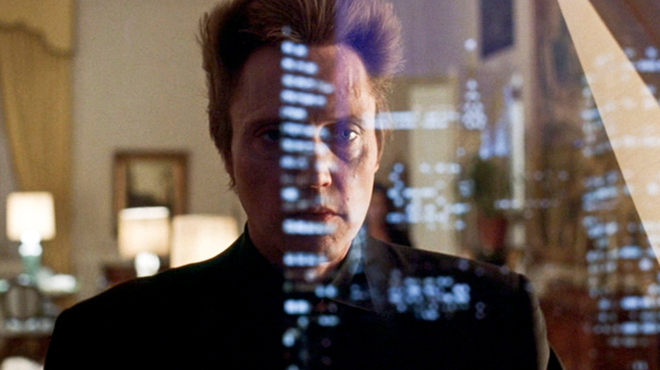
Another quintessential Ferrara film, this brought his name out of obscurity with this star-studded flick that became a key gangster film of the early 90s. This was also significantly a key film in Christopher Walken’s filmography, as it’s regularly regarded as one of his finer roles, with the restraint of his usual eccentricities making it even stronger and more focused.
The main conceit of “King of New York” is a simple Robin Hood-esque tale about drug lord Frank White (Walken) who wants to eliminate the competition so he can use put his immense profits into the poor of the city, including building a children’s hospital.
This moral notion runs a bit thin throughout the film, and it explains why the mostly dialogue-laden first half may prove to be a little too plodding for some. Though this all builds up to a fantastic second half, where character tensions increase and culminate with a brutal shootout (or two), a stunning car chase, another shootout or two, before the final standoff between good guy and bad guy.
Walken does a fine job as the anti-hero, the drug-lord with a heart of gold, but there’s more weight to the performances from the supporting cast.
Laurence Fishburne has an absolute blast with his role; Wesley Snipes plays things far more stoically and adds tremendously to the level of hardness amongst the characters, whether he’s standing and staring perfectly still or caught in a ruffle with one of the gangsters; and David Caruso is phenomenal as the street-wise and dedicated cop who definitely has the most moral center and wears it on his sweary sleeve.
“King of New York”, despite it being one of Ferrara’s most revered films, would be higher on this list if it weren’t as simple as it is and experimented a bit more with conventions. As it is, it’s still an exciting gangster film that works on repeated viewings, and it’s perhaps the performances (and the lean directing and editing of the action scenes) that have it made it so endearing.
7. R’ Xmas (2001)

If you ever craved a Christmas-themed New York gangster film starring Ice-T, heavily inspired by Robert Bresson, then “R ‘Xmas” is sure to satisfy. Ferrara threw all sorts of inspirations and influences into this film and, under his confident handle, managed to make them all meld.
Starting off casually enough, a husband and wife drug-dealing team (Lillo Brancato Jr. and Drea de Matteo, respectively) are not only trying to keep themselves on schedule with dealings and payments, but are also getting prepared for Christmas Day (and that involves the husband buying a toy for his young daughter).
But things go pear-shaped when a kidnapper (Ice-T, as ruthless and menacing as he’s ever been) takes the husband and holds him for ransom, demanding a payment from the wife – all just days before Christmas!
This really is a great film for the festive season, and one of the big reasons is because of rapper Schoolly D’s Christmas-themed score for the film, which is uncharacteristic for someone who excels in street-level gangsta rap, but his new renditions of classic Christmas themes are a joy to hear and inject this drug-dealing film with a little more festivity.
Apart from that, this film is as Christmas-themed as “Die Hard”, but it’s an interesting amalgamation of different genres and styles that match perfectly under Ferrara’s helm.
As usual, he’s gotten superb performances from the three leads who help deconstruct and re-establish the tropes of gangster films, with a lot of Bressonian close-ups and attention to detail, with these actors always keeping it engaging with their strong and assured performances. With Christmas coming up soon, now is a perfect time to put this on your festive watch-list, so you can see both a Christmas film and gangster film unlike any other.
6. Dangerous Game (1993)
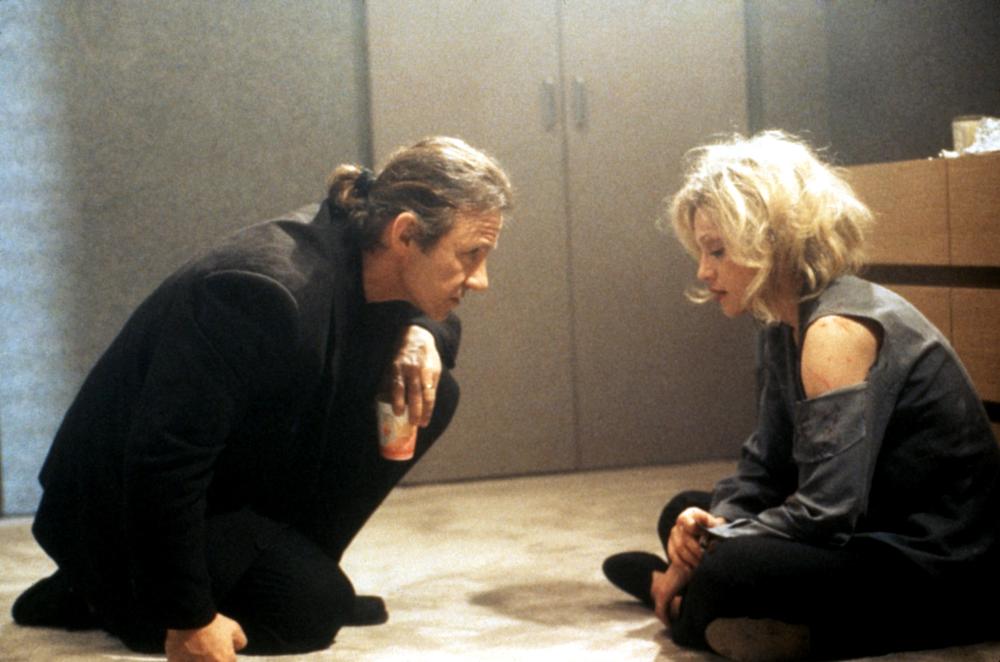
This tricky film-about-filmmaking is yet another opportunity for Ferrara to explore art through his own art, and he’s never been as self-conscious as he is in “Dangerous Game”, which looks more like a behind-the-scenes doco on one of his own sets.
The film being made within this film, “Mother of Mirrors”, is a Hollywood drama passion project of director Eddie Israel (Harvey Keitel, sporting a Tommy Wiseau look), who is trying to cope with celebrity actress Sarah Jennings (appropriately played by Madonna), as is her co-star Frank (James Russo).
She is a trying actress, determined to fulfil the part and please the director, but Eddie keeps testing her patience, endurance, and acting skills as he becomes more manipulative in getting his scenes filmed, which we see in lengthy shooting scenes that show Sarah and Frank continuously going in and out of their characters. These sort of duel performances from Madonna and Russo are impressive, showing how well they can switch between the two personas.
Some films about filmmaking simply use this concept to keep the unrelated storyline interesting, but “Dangerous Game” is fully steeped in the filmmaking world and very clearly shows what happens on a set and with plenty of realistic on-set drama, which is wonderfully performed by this trio of actors who really give a sense of how emotionally exhausting and frustrating being a filmmaker (either in front of or behind the camera) can be.
5. Mary (2005)
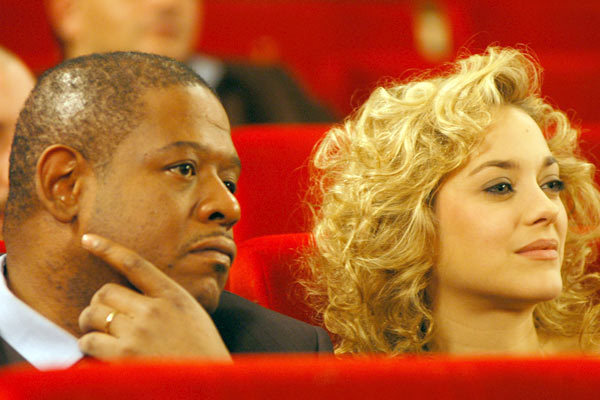
To prove how versatile he is with his subject matter, Ferrara followed this intense and piercing religious exploration with “Go Go Tales”, a film set entirely in a hedonistic dingy den of a gentlemen’s club. In “Mary”, we meet Marie (Juliette Binoche) an actress who has just played Mary Magdalene in a film about Jesus titled “This Is My Blood”, and she ventures to Jerusalem immediately after production finishes to explore her character even further.
The film seems to focus more on Ted Younger (Forest Whitaker), a popular TV panel host who is also exploring the Christian and Judaic faiths revolving mostly around the Resurrection, but he takes it more seriously when tragedy strikes his pregnant wife (Heather Graham).
“Mary” is certainly a film steeped in religion, examining the title character’s relation to Jesus in a far more serious and detailed way than in “The Da Vinci Code”, and also analyses the Resurrection in a more thoughtfully probing way than in “The Passion of the Christ”.
But to offset all this seriousness is the director of “This Is My Blood”, Tony (Matthew Modine), who hilariously comes across as a blowhard who is committed to his vision and artistry and uses every instance he can to remind everyone (apparently, Modine modelled this character after Ferrara himself).
Although “Mary” ends on a triumphant, yet ambiguous note, it may be construed that these loose ends make it feel too aimless. However, “Mary” is itself a journey for viewers as well, to regard faith and religion in an age of television expert guests and egocentric filmmakers, and as fun as “Mary” can be to watch, it’s a strong film that regards religion in a different way than any other modern film.
4. Welcome to New York (2014)
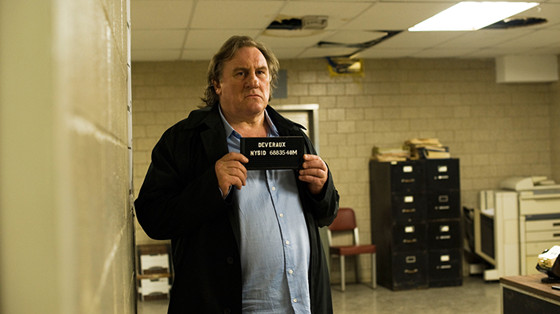
In this new age where wealth equates to power more than ever, “Welcome to New York” sits in between “The Wolf of Wall Street” (2013) and “The Big Short” (2015) and forms this trilogy showing what immunity the wealthy have against their criminal ways. All three films were based on true stories, but “Welcome to New York” deals with how a wealthy individual avoided punishment for not a financial crime, but a sexual crime.
Based loosely on the Dominique Strauss-Kahn sexual assault case, Devereaux (Gerard Depardieu) proves throughout the film how he can commit a sexual assault and receive the almost minimal amount of persecution, not just because of his money, but also because of his powerful status.
In typical Ferrara fashion, the film moves very slowly and it’s baffling to see very early on two long-winded orgy scenes that test the viewer’s patience. However, the ironic payoff is soon revealed and sets off a series of motions involving the arrest and subsequent house arrest of Devereaux, who lumbers and grunts his way through what he may perceive as injustices.
His dopey demeanour is contrasted with his wife’s, Simone’s (Jacqueline Bisset), intense and heightened attempt to tangibly and mentally handle and process all the issues her husband’s crime has brought to her, though this shows how she sympathizes more with herself than with the sexual assault victim.
This is likely Ferrara’s most cynical film, one devoid of anything holy or redemptive, and it is all based on the laws and rules of the money-driven capitalist world. Along with the two aforementioned films, what a sad sight it is to see.
3. Pasolini (2014)
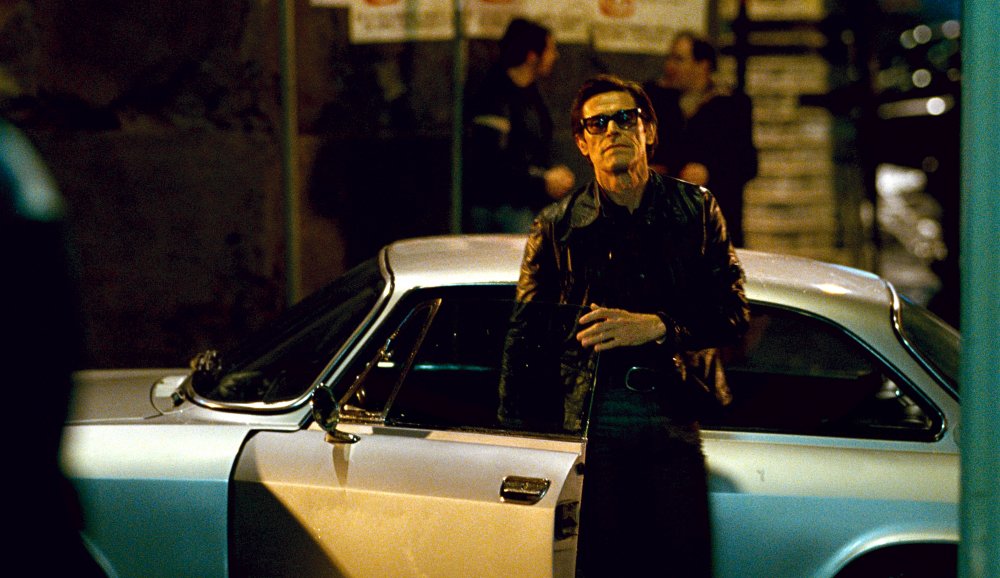
Ferrara has had quite a few passion projects that have taken years to realize, and “Pasolini” was one of them. When he finally managed to get the film into production, it was as if the stars aligned and gave the film more than a few blessings, with Pasolini’s own family supporting the film; they even lent some of the man’s actual clothes to the costume department.
Pier Paolo Pasolini was more than just a subversive artistic filmmaker, he was also a dedicated ist, a thoughtful poet, and a riveting storyteller, and all of these skills are represented through this biography (of his last two days alive) that brings great praise to the man whilst avoiding hagiography. There couldn’t have been a more perfect actor for the role than Willem Dafoe, who not only bears a striking resemblance, but fulfills the part with a lot of quiet passion and intellectual stimulation.
The film only looks at the final two days of his life before he was suddenly and mysteriously murdered, though it pays more attention to his general home life (he was still living with his mother), his artistic endeavors (which are brought to filmic life by Ferrara and wonderfully contrast with Pasolini’s life), and his sociopolitical insights (which are revealed in an interview scene, featuring some extraordinarily subdued acting from Dafoe).
With all this leading up to the penultimate murder, the film goes to show how cruel it is to not just one person, but to their family, friends, and even the world when they are senselessly killed, which only goes to prove Pasolini’s humanist points.
Whether or not Pasolini really did die in the way it is portrayed in this film, this film uses his life as an example that intellectualism and artistry are two very key characteristics of people, as it is what makes them so alive and so engaged with their current society, and the work of Pasolini has since (even before his death) been most influential (and hopefully Ferrara can have a similar impact, too).
2. The Blackout (1997)
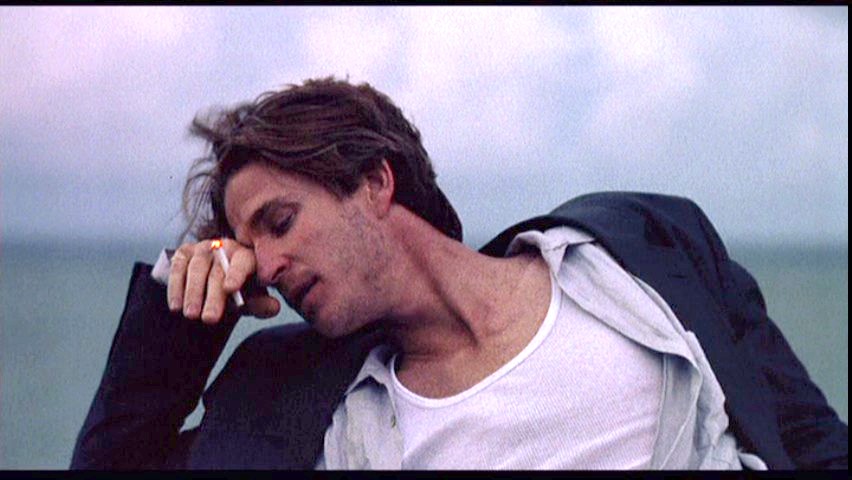
Perhaps Ferrara’s most direly underrated film, “The Blackout” finally received a very limited release four years after its festival run – to very negative and scathing reviews. These critics didn’t do too many favors for the film’s equally unfavorable DVD release (HD release when?), but this is one of the great underappreciated gems of the 90s and is pretty much more deserving of a reappraisal than maybe any other film from that decade.
Matty (Matthew Modine) is not only having to deal with becoming a neglected Hollywood movie star, but he’s also dealing with his girlfriend, Annie (Beatrice Dalle), breaking up with him after he’s devastated that she got an abortion – even though it was him who drunkenly told her to do so.
With each new setback in life, Matty resorts to the life of drinking and partying, mostly with his filmmaking friend Mickey (Dennis Hopper); the film’s style perfectly matches this sort of hazy “blackout” stage in which he often finds himself. Matty can’t rediscover his lost love in his hedonistic ways, so he tries substance abstinence, which seems to work for a small amount of time, but soon horrifying secrets from his past start cropping up, tempting him back into alcoholism.
Comparable to David Lynch’s “Lost Highway” (released in the same year) in the way it portrays heavily distorted memories on a filmic canvas, the exuberantly directing and editing style in “The Blackout” is lead by Modine’s heart-wrenching performance, one that recognizes all the self-inflicted flaws inherent with the character.
Ferrara has a knack at getting some profoundly strong performances from his actors, and Modine’s Matty ranks at the top as an incredibly effective and raw portrayal of a devastating heartbreak, and the film surrounding him makes this a true undervalued masterpiece of the decade.
1. Bad Lieutenant (1992)
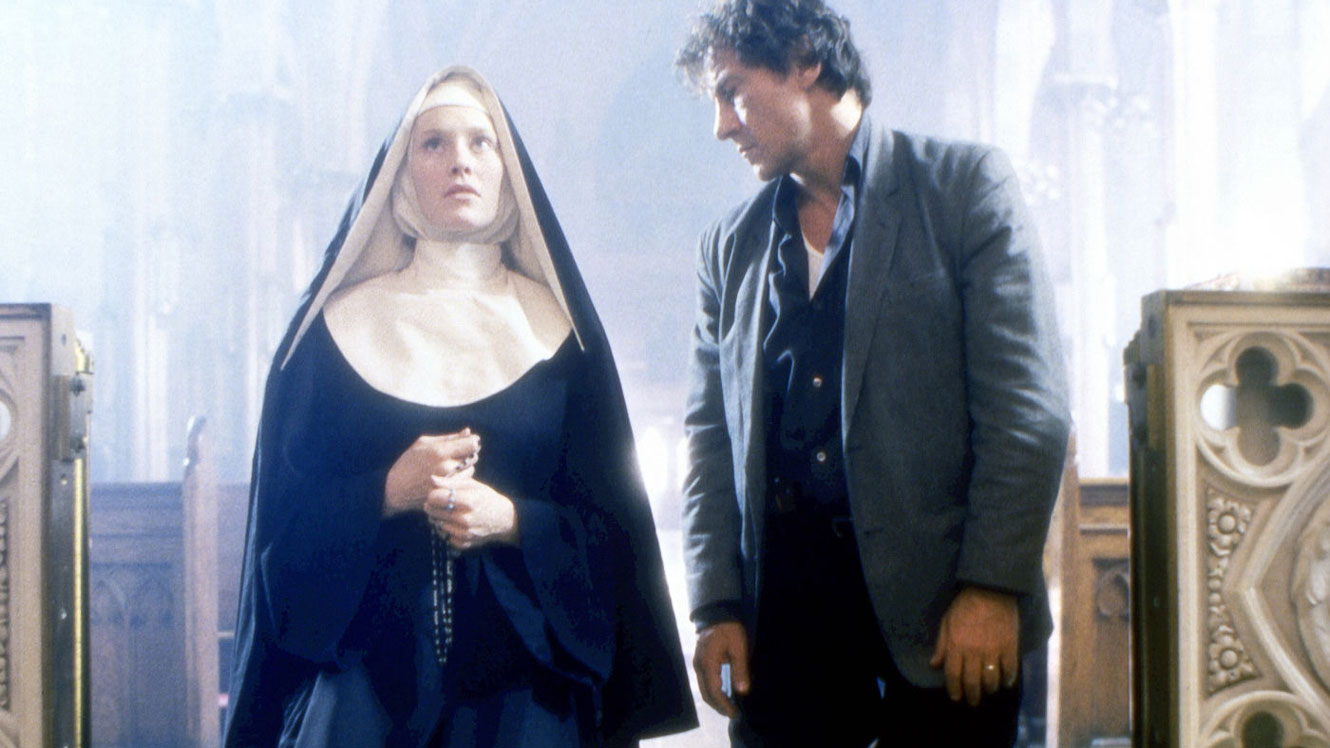
If you thought Nicolas Cage’s bad lieutenant was bad in Werner Herzog’s 2009 sorta-remake, Harvey Keitel out-bads him in just the first 20 minutes of this film and goes further into the downward spiral from there. Despite the story playing out pretty simply, with it mostly exhibitionistically focusing on the numerous hedonistic excesses of Keitel’s Bad LT, the redemptive denouement that comes at the end is what makes “Bad Lieutenant” a film with a deeply strong moral awareness.
When Keitel’s lieutenant breaks down in the church near the end of the film, Keitel displays one of the most raw and naked performances of such anguished pain and self-hatred, yet with a slither of hope for salvation from his own self-made mess.
Like with the tortured main character of “The Blackout”, sometimes the lieutenant’s self-destruction gets so harrowing, it actually ends up becoming hopelessly hilarious to watch. Ferrara’s direction here is more reserved than in some of his other films, letting Keitel lead the character through all his drug and gambling problems as he tries to solve the case of a raped nun (for both the altruist value and for the monetary reward).
It’s no doubt Ferrara is under-cherished as a film director, as is Keitel as an actor, and it is in “Bad Lieutenant” that we have the best work they put on screen. It must’ve had at least some impact on the film world, as Herzog decided to borrow the title and main character for his own vision, but it’s the original here that showcases the director and actor at the top of their game and making “Bad Lieutenant” a life-changing experience.
Author Bio: David Morgan-Brown is an Australian lover of movies, films, flicks, and kino pictures. He does written reviews for Colosoul, video reviews for Flim Reviews, and does comedic skits with his mates for Carpool — go laugh with (or at) him.